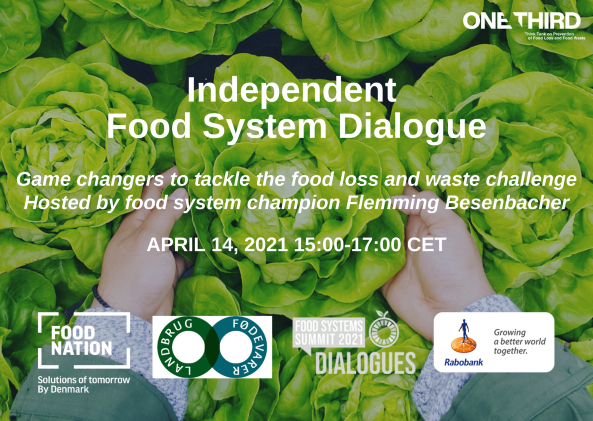Independent Food Systems Dialogue Emphasizes Value of P4G’s Actions to Reduce Food Loss and Waste

About
P4G Global Director Ian de Cruz highlighted P4G's work on reducing food loss and waste through innovative business models at the Independent Food Systems Dialogue, a side-event to the World Food Summit – Better Food for More People. Hosted by the Danish think tank, One/Third, the event focused on identifying key actions and next steps to spark food systems transformation which were submitted to the UN Food Systems Summit.
UN Food Systems Champion Flemming Besenbacher underscored the urgency of moving from talking to taking concrete action to meet the sustainable development goals. He remarked, “the fight against food loss and waste is an ethical and humanitarian issue, as well as a climate change problem.”
Keynote speaker, Wiebe Draijer, Chairman of the Managing Board of Rabobank, highlighted the multi-dimensional effects of reducing food loss and waste, whereby effective actions also tackle greenhouse gas emissions, enable better nutrition to more people, and provide good incomes for those who need it. With Rabobank leading in the network of 12.3 champions, Draijer urged other financial institutions to join the effort. He said, “The financial sector must be an important lever to address this issue.”
In the breakout session on finance, De Cruz emphasized the need for game-changing solutions, such as financial products and voluntary agreements being accelerated by P4G’s FLAWLESS partnership in Mexico, South Africa and Indonesia. De Cruz facilitated a robust discussion about making food loss and waste an attractive investment to transform food systems. Leading change makers in the session identified the need to scale efforts to measure food loss and waste, whereby data and monitoring can serve as a mechanism for de-risking investment. Participants also encouraged countries, corporates and civil society to commit to voluntary targets to reduce food loss and waste. The attendees expressed consensus about the importance of financial institutions and investors developing investment facilities, financial instruments and products to monetize food loss and waste.
To complement these actions, participants identified key next steps, which included establishing regional working groups to measure food loss and waste in high-impact countries, including Indonesia and South Africa. The working groups can also provide examples that prove the business case and through on-the-ground solutions focusing on consumer household waste and cold chains in the African region. Monetizing food loss and waste will also require institutions to develop innovative financial and investment models, such as loans and financing facilities with key stakeholders to meet food loss and waste targets.
The dialogue concluded with facilitators sharing the key outcomes from each of the six breakout sessions, ranging from calls to prioritize more public-private partnerships, increase awareness to empower consumer change, and actively involve youth, among others. The conversation on investment in food loss and waste will be continued at the P4G Seoul Summit in May, the UN Food Systems Summit in September, and COP26 in November, as this year marks a key turning point in the global push for more sustainable, resilient food systems.
Find the recommendations submitted to the UN Food Systems here and view the event summary video here.
